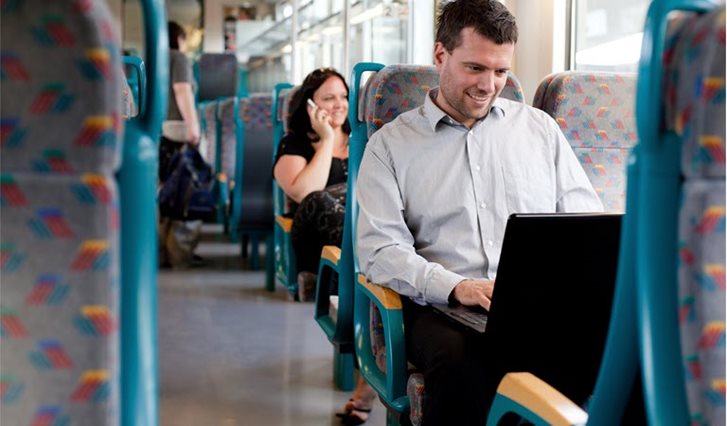Disclaimer. The English translations provided herein are generated by artificial intelligence from Dutch and French content. While every effort has been made to ensure accuracy, we cannot guarantee that the translations will be error-free. The translated content is for readability purposes only and should not be considered as legal advice. For accurate information, employers and HR professionals are advised to consult the original versions in Dutch or French, or to consult your Securex Legal Advisor.
From 1 June 2024, the minimum intervention you have to pay for these journeys increases. Unless your sector already provided better than the National Labor Council's collective labour agreement (CLA) No 19/9.
After five years without adjustments, the national CLA governing reimbursement for commuting by public transport is being amended once again. The changes will take effect on June 1, 2024. There will also be automatic adjustments in future years, according to NMBS/SNCB's fare increases.
Minimum public transport intervention increases from June
In cao No 19/9 of the National Labour Council it states that private sector employers must pay a minimum share of the costs incurred by their employees to travel to work by public transport.
NMBS/SNCB
For commuting by train, a table is included in the CLA No 19/9. This provides the minimum intervals according to the number of kilometres (one-way) and the type of season ticket (monthly, quarterly or annual). In 2019, the intervention table was last adjusted. At that time, the intervention was set at 70% of NMBS/SNCB's prices at the time. NMBS/SNCB's prices were increased several times in subsequent years. The table of the CLA No 19/9 did not. So coming to work by train became more expensive for your workers every year. Currently, workers only see around’56% of their train tickets refunded.
This will change on 1 June 2024. From then on, the intervention rate will be increased to 71.8% of the current NMBS/SNCB fares.
In addition, the table expands to include the tariffs of the Flex season tickets. These are the season tickets for employees who only need to come to work for 2 or 3 days and work from home for the remaining time. From 1 June, employees will therefore be required to choose the subscription formula most suited to their work regime.
A final innovation is that the table will be automatically adjusted in the coming years. If a price increase were to be implemented by NMBS/SNCB in the years 2025 to 2029, an automatic adjustment of the table will be made each time on 1 February of the year in question. However, it will be limited to a maximum of 2.5% per year.
Example
An takes the train from Antwerp to Brussels every day. This amounts to 48 kilometres one way. This season ticket costs her 185 euros for one month. Currently, for a standard monthly season ticket, she receives an allowance from her employer of 104 euro per month. From 1 June 2024, this will be 133 euros.
Our tip
The distances between stations are no longer listed on season tickets. You can look this up via the NMBS/SNCB site.
In order to motivate employers to pay a higher intervention to their employees, the federal government envisages the introduction of a tax credit for train season tickets.
Read more: 'Bill containing various tax provisions' (available in Dutch or French)
Tram, bus and metro
The reimbursement for other means of public transport – such as tram, bus, metro or waterbus – also refers to the table used for train tickets. The amount of the reimbursement differs depending on whether the employee pays a fixed rate for a ticket, or a rate based on the distance travelled. In Belgium, the latter is rare.
- Fixed price: your employee is entitled to a refund of 71.8% of the actual transport price, but that entitlement is limited to the intervention in train transport for a distance of 7 kilometres (one way)
- Price proportional to distance: your employee is entitled to the same reimbursement as for train transport, but limited to 75% of the actual transport price
Nothing changes about these rules. But because they refer to the contribution for rail transport, which is about to increase, the compulsory contribution for these public means of transport also increases. For network subscriptions (fixed price), for example, by raising the limit.
Example
Christine goes to work by bus and has an Omnipas with De Lijn. For one month, it costs her €49, regardless of the distances she travels. She is entitled to a refund from her employer of 71.8% of this, i.e. 35.18 euros per month. However, we should limit this amount to 34 euros. This is the contribution for train travel for 7 kilometres. From June, this limitation will disappear because the contribution for train transport for 7 kilometres will be increased to 43 euros. Christine will therefore get 35.18 euros per month.
Sector can mandate higher intervention
CBA No 19/9 imposes a minimum intervention on you as an employer. But a sector or company can of course decide to pay back more. Some sectors mandate a third-party payer scheme (see below).
Other sectors, such as Joint Committees Nos 200 and 207, provide for an intervention of 80% of the price of the train ticket. In Joint Committees Nos. 314 and 323, it is even 100 per cent of the train ticket price. In that case, a third-party payer scheme is more interesting (see below).
Would you like to know the situation in your joint committee? Then go to ‘Joint committees > Your JC > Transport costs’ and read our analysis (available in Dutch or French).
Third-party payer scheme
With a third-party payer scheme, as an employer you pay 80% of the price of the train ticket. You pay this directly to NMBS/SNCB and your employee does not have to advance anything. The remaining 20% is financed by the government. A win-win for all parties therefore.
In some sectors, you are obliged as an employer to enter into a third-party payer scheme. For example, Joint Committees Nos 307 and 337 and many non-profit sectors.
Interested? Contact NMBS/SNCB for more information.
Private transport
There is no national obligation across sectors for employers to intervene in the costs incurred by your employees using a private vehicle. But your sector can impose it. Nothing will change about this principle.
Would you like to know what the situation is in your joint committee? Then go to ‘Joint committees > Your JC > Transport costs’ and read our analysis (available in Dutch or French).
What does Securex do for you ?
We automatically apply the right interventions for your file. Don't forget to pass on the commuting distances and the correct means of transport in your Securex tool.
Don't forget to pass on the commuting distances and the correct means of transport in your Securex tool.
Does your joint committee follow collective labour agreement no. 19/9? Then you will find the adjusted amounts on Lex4You from June 2024.
Sources






